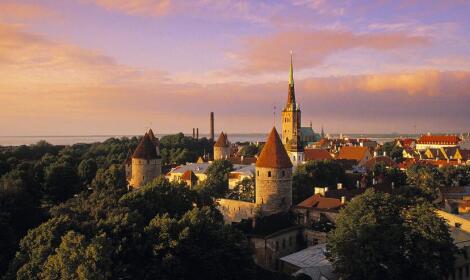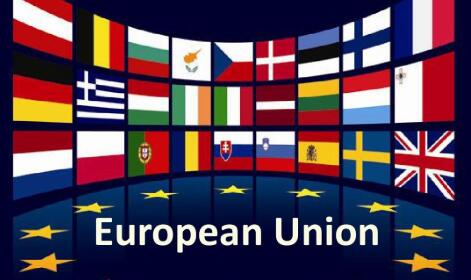阿提拉国王是匈牙利人、突厥人、蒙古人还是欧洲人?
正文翻译

图:罗马教皇利奥大帝和匈奴王阿提拉在罗马城外的假想会面。
根据传统叙述,当教皇和阿提拉会面,教皇称自己是上帝的代表。匈奴王回答说:
Ego sum Attila, flagellum Dei(我是阿提拉,上帝的鞭子)
不,教皇不会说:“见到你很高兴“。

图:罗马教皇利奥大帝和匈奴王阿提拉在罗马城外的假想会面。
根据传统叙述,当教皇和阿提拉会面,教皇称自己是上帝的代表。匈奴王回答说:
Ego sum Attila, flagellum Dei(我是阿提拉,上帝的鞭子)
不,教皇不会说:“见到你很高兴“。
评论翻译
Mert Toker
Attila represented mostly Nomadic people who wanted to settle in Roman and European lands and take part in the continental economic system. Therefore it is better to take the term ‘’European’’ out. His political cause is more related to the migration of tribes rather than conquests. There is a type of oversimplification in history when it comes to ‘’Huns’’. He was a powerful warlord and an astute politician, keeping a diverse confederation of tribes together for decades.
The historical importance of Attila is not about his military power. It is about willpower which provided a common vision for nomadic people. A confederation of nomads and unwanted settlers of Northern Europe. Some ‘’European’’ people who had slave-like status also joined his cause. It is really about joining the Roman civilization and economy rather than destroying it. I hope some historians would develop new ways to uate the events of the era in the coming decades.
It is one of the unique cases of history. How many times would Europe see the alliance of some Turkic, Germanic, Slavic, and (proto) 马扎尔人 tribes under one roof? Their war was not really about just pillaging and looting. It was more about replacing the dying Roman Empire and getting part in settled communities. It was a quest to find something better and create a new order under the iron fist of a strong leader. It eventually opened the route for the Germanization of the Roman Empire. Attila’s political wave had a big impact on European history. It was more than shooting arrows and riding on horseback.
(注:阿提拉(公元406年—公元453年),古代亚欧大陆匈人的领袖和帝王,被欧洲人称为“上帝之鞭”。 448年至452年,匈人帝国在阿提拉的带领下,疆土到了盛极的地步:东起自咸海,西至大西洋海岸;南起自多瑙河,北至波罗的海。在这广大区域的一带附属国,都有自己的国王和部落酋长,平日向阿提拉称臣纳贡,战时出兵参战。在阿提拉死后,他的帝国迅速瓦解消失——维基)
阿提拉主要代表游牧民族,他们希望在罗马和欧洲的土地上定居,并参与大陆经济体系。因此,最好把“欧洲人”这个词去掉。他的政治事业更多的是与部落迁徙有关,而不是与征服有关。历史上有一种对“匈奴人”的过度简化。他是一个强大的军阀,也是一个精明的政治家,几十年来一直保持着一个多样化的部落联盟。
阿提拉的历史重要性并不在于他的军事力量。这是意志力,为游牧民族以及游牧民族和不受欢迎的北欧定居者组成的联盟提供了共同的愿景。一些具有奴隶身份的“欧洲人”也加入了他的行列。他实际上是想加入罗马文明和经济,而不是摧毁它。我希望一些历史学家能在未来几十年发展出新的方法来评估那个时代的事件。
这是历史上独一无二的事件之一。欧洲能看到一些突厥人、日耳曼人、斯拉夫人和(原始的)马扎尔人部落联盟在一个屋檐下的机会并不多。他们的战争不仅仅是抢劫和掠夺。它更多的是为了取代垂死的罗马帝国,并参与到定居社区中来。这是一种在强势领导人的铁腕下寻找更好的东西并创建新秩序的追求。它最终为罗马帝国的日耳曼化开辟了道路。阿提拉的政治浪潮对欧洲历史产生了重大影响。这不仅仅是射箭和骑马。
Like other rulers regarded (by the West) as ‘barbarians,’ including Gaiseric and Genghis Khan, Attila the Hun has a bad reputation amongst Westerners. This Hunnic ruler has been portrayed as an enemy of civilization, a ruthless mass murderer, and an uncultured savage. Nevertheless, this is only one side of the coin.
Therefore maybe it is better to change the historical mindset. There is really nothing to be proud of if Attila was just a gang leader focused on looting. When it comes to the question above, Attila was most probably a Turkic leader. Although there is no definite proof, the definitions of the day clearly reflect typical Central Asian Turkic way of living, traditions, and belief systems. Avars who scientifically had been identified as mostly Turkic people eventually replaced Huns in today’s Hungary after the downfall of Attila’s Empire.They are considered by many historians to be the successors of the Huns in their way of life and, especially, mounted warfare. They settled in the Huns' former territory and almost instantly set upon a course of conquest. ‘’ Source of the quoted paragraphs:
就像其他被西方视为“野蛮人”的统治者一样,包括盖塞里克(汪达尔人和阿兰人领袖(428年-477年在位),北非的征服者。——维基)和成吉思汗,匈奴王阿提拉在西方人中名声不好。这个匈奴统治者被描绘成文明的敌人、残忍的屠杀者和未开化的野蛮人。然而,这只是硬币的一面。
因此,也许改变历史思维方式会更好。如果阿提拉只是一个专注于抢劫的帮派头目,那真的没有什么值得骄傲的。当提到上述问题时,阿提拉很可能是一位突厥领袖。虽然没有确切的证据,但对当时的定义清楚地反映了典型的中亚突厥人的生活方式、传统和信仰体系。阿瓦尔人在阿提拉帝国灭亡后,在今天的匈牙利取代了匈奴人。
“许多历史学家认为他们是匈奴人生活方式的继承者,尤其是在骑马作战方面。他们在匈奴人以前的领土上定居下来,几乎立刻就开始了征服之旅。” 引用段落的来源:链接略
Although the leaders are most probably composed of Turkic people, there were Germanic allies as well as some Slavic ones. For example: Ardaric of the Gepids was his close advisor. He became the top guy after Atilla’s demise. Possibly ‘’early’’ 马扎尔人s were included in this tribal empire. ( 马扎尔人s migrated to today’s Hungary centuries later) Besides Turkic people, Ostrogoths, Bulgars, Alans were in the tribal confederation.
Hungary's name most probably comes from onogur. (ten arrows in an early Turkic language, on ok ) Similar to the name of Kırgız in today’s Kırghizstan. ( Comes from the number 40)
Priscus' early definitions reflect the traditional Turkic way of living. It is really not important how he defined people like Scythians etc. It was a general term during Roman times. However, if Attila was a Germanic leader, he surely knew how to define it.
It is kind of obvious once someone checks the family names of Attila. His uncle’s name is Aybars (Moon Pars) still used in Turkish as it is. His sons are called Ellik ( Ellac), Denizcik ( Small sea, translated as Dengizich, and Ernac ( probably comes from er, real man, hero, soldier. ) Ernac was his favorite son according to Priscus. Attila’s name is most probably related to İtil( İdil) Turkic name for the Volga river. There is still a female name version used in Turkey: İdil…
Another theory suggests Turkish atli (horseman, cavalier), meaning "possessor of geldings, provider of warhorses" according to Wikipedia. Another theory suggests Turkic roots once again: ‘’In fact, ‘Attila’ may not have been his real name, for ‘Ata-ila’ may be translated as ‘Little-Father’’ Source of the quoted paragraphs:
虽然领导人很可能是由突厥人组成,但也有日耳曼盟友和一些斯拉夫盟友。例如:格皮德人的阿达里克是他的亲密顾问。阿提拉死后,他成了首领。可能“早期”的马扎尔人也包括在这个部落帝国中。(几个世纪后,马扎尔人移居到今天的匈牙利)除了突厥人,东哥特人、保加利亚人和阿兰人都在这个部落联盟中。
匈牙利的名字很可能来自于onogur。(早期突厥语中的“10个箭头”意)类似于今天Kırghizstan中的Kırgız。(来自数字40)
普里克斯(Priscus)早期的定义反映了传统的突厥人的生活方式。他如何定义像斯基提亚人这样的人并不重要。在罗马时代,这是一个普遍的术语。然而,如果阿提拉是一个日耳曼领袖,他肯定知道如何定义它。
如果有人查一下阿提拉的姓,就会发现这很明显。他叔叔的名字是Aybars (Moon Pars),在突厥语中仍沿用至今。他的儿子们分别叫Ellik (Ellac)、Denizcik (Small sea,翻译为Dengizich)和Ernac(可能来自er, real man, hero, soldier)。
据普里克斯说,Ernac是他最喜欢的儿子。阿提拉的名字很可能与伏尔加河的突厥语名称İtil(İdil)有关。突厥还有一个女性名字版本:İdil……
另一种理论认为突厥的atli(骑手,骑士),根据维基百科,意思是“马的拥有者,战马的提供者”。另一种理论再次表明突厥语的根源: 事实上,“阿提拉(Attila)”可能不是他的真名,因为“阿塔-伊拉(Ata-ila)”似乎可以被翻译成“Little-Father”。 该段落引用来源:链接略
From my point of view, it is really not important what genetic codes Atilla carried. What matters he tried to achieve. By a new mindset, future historians would probably find it was more than looting and pillaging. Historically, people are defined by what they do and stand for. Not by their birth records.
A Turk from today’s Turkey or Russia would not be able to communicate with him. 1500 years is a big hole in language evolution. Therefore it is kind of meaningless to discuss his genetic roots.
According to the common narrative, once Pope and Attila met, the Pope called himself the representative of God. Attila replied as:
Ego sum Attila, flagellum Dei(I am Attila, the scourge of God)'
No, Pope did not say ‘’nice to meet you’’.
在我看来,Atilla携带的基因密码真的不重要。以一种新的思维方式,未来的历史学家可能会发现,这不仅仅是抢劫和掠夺。从历史上看,人是由他们的行为和主张来定义的。
一个来自今天的突厥或俄罗斯的突厥人是无法与他交流的。1500年是语言演化不可逾越的鸿沟。因此,讨论他的遗传根源是没有意义的。
Hare Wulfe
Firstly he wasnt a King. He was a Khagan (Kağan).
He was a Hun. Not an Hungarian (In Turkish Macar), Turk or Mongol
Most of Historians say Attila’s language was a Turkic language. But this is unprovable.
Turks, Mongols and Tatars were the main majorities of Hun Empire. And Turkic population was the biggest part.
首先,阿提拉不是国王,他是可汗。
其次,他是一个匈人,不是匈牙利人(在突厥语中“匈牙利人”是Macar),突厥人或蒙古人。
大多数历史学家认为阿提拉的语言是突厥语,但无法证明。
突厥人、蒙古人和鞑靼人是匈奴帝国的主要主体,突厥人占了大部分。
Zoltán Oláh
Attila’s language was agglutinating ancient-turkish - MACAR/magyar, similar to the laguage technology currently is spoken in the Carpatian-basin.
阿提拉的语言将古突厥语/Macar/马扎尔人结合在一起,类似于目前在Carpatian盆地使用的语言。
WarManiac
Though western resources says opposite, those books are just trashes. So here is the reality: he was a genueue, bonafide Turk. Here some proofs.
His belief was Tengrism, a Turkish word for God+ism, a cental asian religion According to this belief only who has divine blood could rule tribes. The very same stuff happened with Asian Turk Khaganates and Genghis who had a divine blood from his mother who had this tx to her Turkish royal dynasty lineage. And the only people had this divine blood were Turks which is a well known fact. Today everyone who calls them asian huns or xiongnu accepts the ruler people were Turks. So Attila came from this dynasty, recreating asian huns' legacy for more legimitation to his ruling case who fought vs his brother for ruling rights.
And he didnt carry that low, inferior title. He had a better, superior title… Han
虽然西方来源的书籍说的不一样,但那些书都是垃圾。
事实是这样的:他是一个真正的突厥人。证据在于:
他相信腾格里主义(Tengrism),在突厥语中是“上帝主义”的意思,根据这种信仰,只有拥有神血的人才能统治部落。同样的事情也发生在亚洲突厥王朝和成吉思汗身上,成吉思汗有来自他母亲的神圣血液,而他母亲的血统又与她的突厥王室血统相连。只有突厥人有这种神圣的血统,这是众所周知的事实。
今天,所有称他们为亚洲匈人或匈奴的人都承认他们的统治者是突厥人。因此,阿提拉来自这个王朝,为了与他的兄弟争夺统治权,他重新创造了亚洲匈奴的遗产,以获得更多的合法性。
并且于他而言,国王是一个低级头衔,他有一个更好、更高贵的头衔——可汗。
Attila represented mostly Nomadic people who wanted to settle in Roman and European lands and take part in the continental economic system. Therefore it is better to take the term ‘’European’’ out. His political cause is more related to the migration of tribes rather than conquests. There is a type of oversimplification in history when it comes to ‘’Huns’’. He was a powerful warlord and an astute politician, keeping a diverse confederation of tribes together for decades.
The historical importance of Attila is not about his military power. It is about willpower which provided a common vision for nomadic people. A confederation of nomads and unwanted settlers of Northern Europe. Some ‘’European’’ people who had slave-like status also joined his cause. It is really about joining the Roman civilization and economy rather than destroying it. I hope some historians would develop new ways to uate the events of the era in the coming decades.
It is one of the unique cases of history. How many times would Europe see the alliance of some Turkic, Germanic, Slavic, and (proto) 马扎尔人 tribes under one roof? Their war was not really about just pillaging and looting. It was more about replacing the dying Roman Empire and getting part in settled communities. It was a quest to find something better and create a new order under the iron fist of a strong leader. It eventually opened the route for the Germanization of the Roman Empire. Attila’s political wave had a big impact on European history. It was more than shooting arrows and riding on horseback.
(注:阿提拉(公元406年—公元453年),古代亚欧大陆匈人的领袖和帝王,被欧洲人称为“上帝之鞭”。 448年至452年,匈人帝国在阿提拉的带领下,疆土到了盛极的地步:东起自咸海,西至大西洋海岸;南起自多瑙河,北至波罗的海。在这广大区域的一带附属国,都有自己的国王和部落酋长,平日向阿提拉称臣纳贡,战时出兵参战。在阿提拉死后,他的帝国迅速瓦解消失——维基)
阿提拉主要代表游牧民族,他们希望在罗马和欧洲的土地上定居,并参与大陆经济体系。因此,最好把“欧洲人”这个词去掉。他的政治事业更多的是与部落迁徙有关,而不是与征服有关。历史上有一种对“匈奴人”的过度简化。他是一个强大的军阀,也是一个精明的政治家,几十年来一直保持着一个多样化的部落联盟。
阿提拉的历史重要性并不在于他的军事力量。这是意志力,为游牧民族以及游牧民族和不受欢迎的北欧定居者组成的联盟提供了共同的愿景。一些具有奴隶身份的“欧洲人”也加入了他的行列。他实际上是想加入罗马文明和经济,而不是摧毁它。我希望一些历史学家能在未来几十年发展出新的方法来评估那个时代的事件。
这是历史上独一无二的事件之一。欧洲能看到一些突厥人、日耳曼人、斯拉夫人和(原始的)马扎尔人部落联盟在一个屋檐下的机会并不多。他们的战争不仅仅是抢劫和掠夺。它更多的是为了取代垂死的罗马帝国,并参与到定居社区中来。这是一种在强势领导人的铁腕下寻找更好的东西并创建新秩序的追求。它最终为罗马帝国的日耳曼化开辟了道路。阿提拉的政治浪潮对欧洲历史产生了重大影响。这不仅仅是射箭和骑马。
Like other rulers regarded (by the West) as ‘barbarians,’ including Gaiseric and Genghis Khan, Attila the Hun has a bad reputation amongst Westerners. This Hunnic ruler has been portrayed as an enemy of civilization, a ruthless mass murderer, and an uncultured savage. Nevertheless, this is only one side of the coin.
Therefore maybe it is better to change the historical mindset. There is really nothing to be proud of if Attila was just a gang leader focused on looting. When it comes to the question above, Attila was most probably a Turkic leader. Although there is no definite proof, the definitions of the day clearly reflect typical Central Asian Turkic way of living, traditions, and belief systems. Avars who scientifically had been identified as mostly Turkic people eventually replaced Huns in today’s Hungary after the downfall of Attila’s Empire.They are considered by many historians to be the successors of the Huns in their way of life and, especially, mounted warfare. They settled in the Huns' former territory and almost instantly set upon a course of conquest. ‘’ Source of the quoted paragraphs:
就像其他被西方视为“野蛮人”的统治者一样,包括盖塞里克(汪达尔人和阿兰人领袖(428年-477年在位),北非的征服者。——维基)和成吉思汗,匈奴王阿提拉在西方人中名声不好。这个匈奴统治者被描绘成文明的敌人、残忍的屠杀者和未开化的野蛮人。然而,这只是硬币的一面。
因此,也许改变历史思维方式会更好。如果阿提拉只是一个专注于抢劫的帮派头目,那真的没有什么值得骄傲的。当提到上述问题时,阿提拉很可能是一位突厥领袖。虽然没有确切的证据,但对当时的定义清楚地反映了典型的中亚突厥人的生活方式、传统和信仰体系。阿瓦尔人在阿提拉帝国灭亡后,在今天的匈牙利取代了匈奴人。
“许多历史学家认为他们是匈奴人生活方式的继承者,尤其是在骑马作战方面。他们在匈奴人以前的领土上定居下来,几乎立刻就开始了征服之旅。” 引用段落的来源:链接略
Although the leaders are most probably composed of Turkic people, there were Germanic allies as well as some Slavic ones. For example: Ardaric of the Gepids was his close advisor. He became the top guy after Atilla’s demise. Possibly ‘’early’’ 马扎尔人s were included in this tribal empire. ( 马扎尔人s migrated to today’s Hungary centuries later) Besides Turkic people, Ostrogoths, Bulgars, Alans were in the tribal confederation.
Hungary's name most probably comes from onogur. (ten arrows in an early Turkic language, on ok ) Similar to the name of Kırgız in today’s Kırghizstan. ( Comes from the number 40)
Priscus' early definitions reflect the traditional Turkic way of living. It is really not important how he defined people like Scythians etc. It was a general term during Roman times. However, if Attila was a Germanic leader, he surely knew how to define it.
It is kind of obvious once someone checks the family names of Attila. His uncle’s name is Aybars (Moon Pars) still used in Turkish as it is. His sons are called Ellik ( Ellac), Denizcik ( Small sea, translated as Dengizich, and Ernac ( probably comes from er, real man, hero, soldier. ) Ernac was his favorite son according to Priscus. Attila’s name is most probably related to İtil( İdil) Turkic name for the Volga river. There is still a female name version used in Turkey: İdil…
Another theory suggests Turkish atli (horseman, cavalier), meaning "possessor of geldings, provider of warhorses" according to Wikipedia. Another theory suggests Turkic roots once again: ‘’In fact, ‘Attila’ may not have been his real name, for ‘Ata-ila’ may be translated as ‘Little-Father’’ Source of the quoted paragraphs:
虽然领导人很可能是由突厥人组成,但也有日耳曼盟友和一些斯拉夫盟友。例如:格皮德人的阿达里克是他的亲密顾问。阿提拉死后,他成了首领。可能“早期”的马扎尔人也包括在这个部落帝国中。(几个世纪后,马扎尔人移居到今天的匈牙利)除了突厥人,东哥特人、保加利亚人和阿兰人都在这个部落联盟中。
匈牙利的名字很可能来自于onogur。(早期突厥语中的“10个箭头”意)类似于今天Kırghizstan中的Kırgız。(来自数字40)
普里克斯(Priscus)早期的定义反映了传统的突厥人的生活方式。他如何定义像斯基提亚人这样的人并不重要。在罗马时代,这是一个普遍的术语。然而,如果阿提拉是一个日耳曼领袖,他肯定知道如何定义它。
如果有人查一下阿提拉的姓,就会发现这很明显。他叔叔的名字是Aybars (Moon Pars),在突厥语中仍沿用至今。他的儿子们分别叫Ellik (Ellac)、Denizcik (Small sea,翻译为Dengizich)和Ernac(可能来自er, real man, hero, soldier)。
据普里克斯说,Ernac是他最喜欢的儿子。阿提拉的名字很可能与伏尔加河的突厥语名称İtil(İdil)有关。突厥还有一个女性名字版本:İdil……
另一种理论认为突厥的atli(骑手,骑士),根据维基百科,意思是“马的拥有者,战马的提供者”。另一种理论再次表明突厥语的根源: 事实上,“阿提拉(Attila)”可能不是他的真名,因为“阿塔-伊拉(Ata-ila)”似乎可以被翻译成“Little-Father”。 该段落引用来源:链接略
From my point of view, it is really not important what genetic codes Atilla carried. What matters he tried to achieve. By a new mindset, future historians would probably find it was more than looting and pillaging. Historically, people are defined by what they do and stand for. Not by their birth records.
A Turk from today’s Turkey or Russia would not be able to communicate with him. 1500 years is a big hole in language evolution. Therefore it is kind of meaningless to discuss his genetic roots.
According to the common narrative, once Pope and Attila met, the Pope called himself the representative of God. Attila replied as:
Ego sum Attila, flagellum Dei(I am Attila, the scourge of God)'
No, Pope did not say ‘’nice to meet you’’.
在我看来,Atilla携带的基因密码真的不重要。以一种新的思维方式,未来的历史学家可能会发现,这不仅仅是抢劫和掠夺。从历史上看,人是由他们的行为和主张来定义的。
一个来自今天的突厥或俄罗斯的突厥人是无法与他交流的。1500年是语言演化不可逾越的鸿沟。因此,讨论他的遗传根源是没有意义的。
Hare Wulfe
Firstly he wasnt a King. He was a Khagan (Kağan).
He was a Hun. Not an Hungarian (In Turkish Macar), Turk or Mongol
Most of Historians say Attila’s language was a Turkic language. But this is unprovable.
Turks, Mongols and Tatars were the main majorities of Hun Empire. And Turkic population was the biggest part.
首先,阿提拉不是国王,他是可汗。
其次,他是一个匈人,不是匈牙利人(在突厥语中“匈牙利人”是Macar),突厥人或蒙古人。
大多数历史学家认为阿提拉的语言是突厥语,但无法证明。
突厥人、蒙古人和鞑靼人是匈奴帝国的主要主体,突厥人占了大部分。
Zoltán Oláh
Attila’s language was agglutinating ancient-turkish - MACAR/magyar, similar to the laguage technology currently is spoken in the Carpatian-basin.
阿提拉的语言将古突厥语/Macar/马扎尔人结合在一起,类似于目前在Carpatian盆地使用的语言。
WarManiac
Though western resources says opposite, those books are just trashes. So here is the reality: he was a genueue, bonafide Turk. Here some proofs.
His belief was Tengrism, a Turkish word for God+ism, a cental asian religion According to this belief only who has divine blood could rule tribes. The very same stuff happened with Asian Turk Khaganates and Genghis who had a divine blood from his mother who had this tx to her Turkish royal dynasty lineage. And the only people had this divine blood were Turks which is a well known fact. Today everyone who calls them asian huns or xiongnu accepts the ruler people were Turks. So Attila came from this dynasty, recreating asian huns' legacy for more legimitation to his ruling case who fought vs his brother for ruling rights.
And he didnt carry that low, inferior title. He had a better, superior title… Han
虽然西方来源的书籍说的不一样,但那些书都是垃圾。
事实是这样的:他是一个真正的突厥人。证据在于:
他相信腾格里主义(Tengrism),在突厥语中是“上帝主义”的意思,根据这种信仰,只有拥有神血的人才能统治部落。同样的事情也发生在亚洲突厥王朝和成吉思汗身上,成吉思汗有来自他母亲的神圣血液,而他母亲的血统又与她的突厥王室血统相连。只有突厥人有这种神圣的血统,这是众所周知的事实。
今天,所有称他们为亚洲匈人或匈奴的人都承认他们的统治者是突厥人。因此,阿提拉来自这个王朝,为了与他的兄弟争夺统治权,他重新创造了亚洲匈奴的遗产,以获得更多的合法性。
并且于他而言,国王是一个低级头衔,他有一个更好、更高贵的头衔——可汗。









